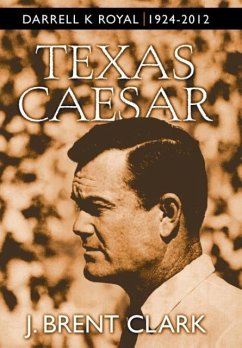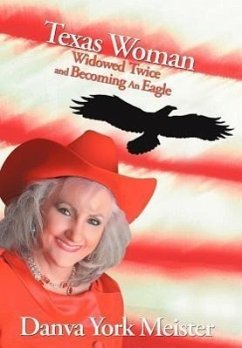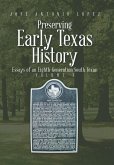The iconic college football coaches of the twentieth century emerged after World War II, bringing with them a military bearing and a love of "war without casualties." Coach Darrell Royal's life reads like a Shakespearean tragedy, replete with victory, defeat, betrayal and sorrow. Bear Bryant of Alabama, Bud Wilkinson of Oklahoma and Darrell Royal of Texas. What they accomplished over their lifetimes as coaches could not have happened anywhere in the United States except the post-war South. From the advent of television in the mid-1950's through the desegregation of universities and athletic programs following the Civil Rights Act of 1964, Coach Royal led the conflicted life of a warrior, a father and a servant to the rich and powerful. Forbes Magazine has stated the UT-Austin athletic program is the most valuable in the country, worth an estimated 180 million dollars. The UT financial statement doesn't reveal how big money and political power overshadow the games and the young athletes who play them. In the beginning, there was sorrow and loneliness. Darrell Royal's mother, Katy, died three months after he was born, in 1924, leaving him in the hands of an inattentive father of six children and a veritable string of evil stepmothers. Darrell found his father figure and mentor in Bud Wilkinson, the courtly head coach of the mighty Oklahoma Sooners. In Norman, Darrell emulated Bud and for the first time, knew glory as an All-American player with a fiercely competitive spirit. By the early 1960's, Royal's job-hopping had landed him in Austin where the possibilities of gridiron glories remained unrealized. Royal was a perfect fit to change that. Television was bringing college football into the homes of Americans nationwide. Bryant, Wilkinson and Royal had an advantage. Each was telegenic, articulate and charismatic. The celebrity football coaches were earning their places in history by winning games but also by evolving into actors on a national stage. The fall of 1963 changed the lives of all Americans. Royal's Longhorns, ranked number two in the Associated Press, defeated Oklahoma, ranked number one, and went on to an undefeated season and Texas' first ever national championship. Scarcely a month later, also in Dallas, President Kennedy was assassinated. His successor was a Texan -Lyndon Baines Johnson. Royal's life was going to be influenced in ways he could scarcely imagine and certainly couldn't control. Texas has always been a provocative political environment. A Texas politician has to yell long and loud to get noticed in the vastness of the State. Since winners migrate to other winners, post-1963, Darrell and Edith Royal were on everyone's "A" list for political and social events. The oligarchs who called the shots at UT also made it clear to Coach Royal. They didn't want any "coloreds" on their football team. While Royal coached the 1969 Longhorns to another national championship, the team regrettably was dubbed, "the last lily white national championship team." Eventually, the tightrope Royal was being forced to walk began to wobble uncontrollably. It was the spring of 1974 before Royal finally landed a black student-athlete to whom he could point with pride. The young man was Earl Campbell, the "Tyler Rose." Bryant, Wilkinson and Royal are gone now. There are statues and street names and even campus stadiums named after them. The game they knew and coached is gone as well. As a result, we are left with the historical perspective they gave us, punctuated by the agonizing undercurrents that changed the game and changed a nation.
Hinweis: Dieser Artikel kann nur an eine deutsche Lieferadresse ausgeliefert werden.
Hinweis: Dieser Artikel kann nur an eine deutsche Lieferadresse ausgeliefert werden.








